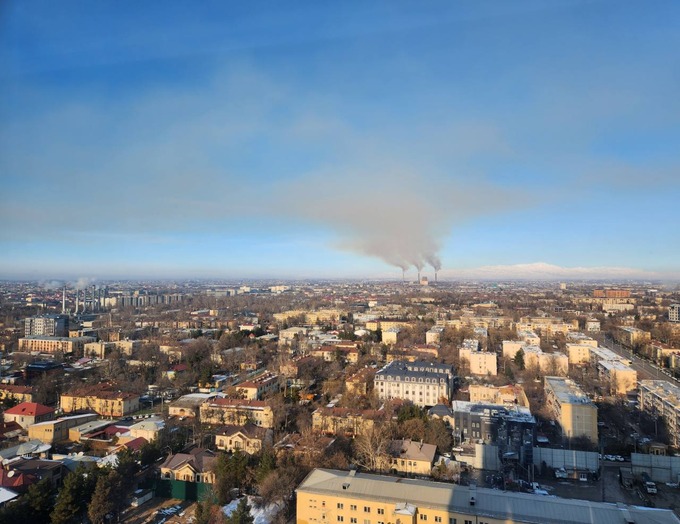The Tashkent Thermal Power Plant (Tashkent TPP) in Uzbekistan finds itself at the center of environmental controversy as it faces fines and scrutiny for violations of environmental legislation, including emissions of pollutants. The Ministry of Ecology, Environmental Protection, and Climate Change of Uzbekistan conducted an inspection from January 23 to 31, revealing environmental concerns related to the plant's operations, Gazeta.uz reported on February 2.

Violations and Fines
As a consequence of these violations, the thermal power plant has been fined with a significant amount of to UZS 1.023 bn (approximately $83,000). This includes UZS 759 mn ($61,470) for harmful emissions due to fuel oil combustion and UZS 264 mn ($21,380) for the spillage of oil products.
Remedial Instructions and Legal Assessment
In addition to the fines, environmentalists issued mandatory 16-point remedial instructions to address the identified environmental shortcomings. The Ministry of Ecology, Environmental Protection, and Climate Change plans to submit the collected documents to the court to provide a legal assessment of the actions of Tashkent TPP officials in relation to the violations.
Previous Environmental Concerns
This recent scrutiny follows a notable incident on December 14 when Tashkent experienced air pollution caused by the chimneys of Tashkent TPP. Sources within the energy sector attribute this pollution to the combustion of fuel oil by heat-generating enterprises. The Ministry's findings coincide with the concerns raised in November 2023 by the Minister of Energy, Jurabek Mirzamakhmudov, about the use of fuel oil during abnormal cold weather.
Increased Fuel Oil Consumption
Urgent Measures to Improve Air Quality
Amidst these environmental challenges, the Ministry of Environment outlines urgent measures to improve air quality in Tashkent. These include the widespread installation of sensors, a ban on AI-80, coal, and fuel oil at thermal power plants, the installation of dust and gas cleaning devices in greenhouses and enterprises, a moratorium on construction, and more.
The primary function of the "Tashkent Thermal Power Plant" is to produce electricity and provide heating. Construction of this significant power facility, a key component of the republic's energy system, commenced in 1960. The plant's first unit, boasting a capacity of 150 MW, became operational in December 1963, with the final unit joining the network in 1971. Commercial operations for the power plant officially began in 1975. In the fourth quarter of 2015, a combined-cycle gas facility with a capacity of 370 MW was introduced. As of July 1, 2021, the Tashkent Thermal Power Plant has generated a total of 462.2 billion kilowatt-hours of electricity.
Follow Daryo's official Instagram and Twitter pages to keep current on world news.
Comments (0)